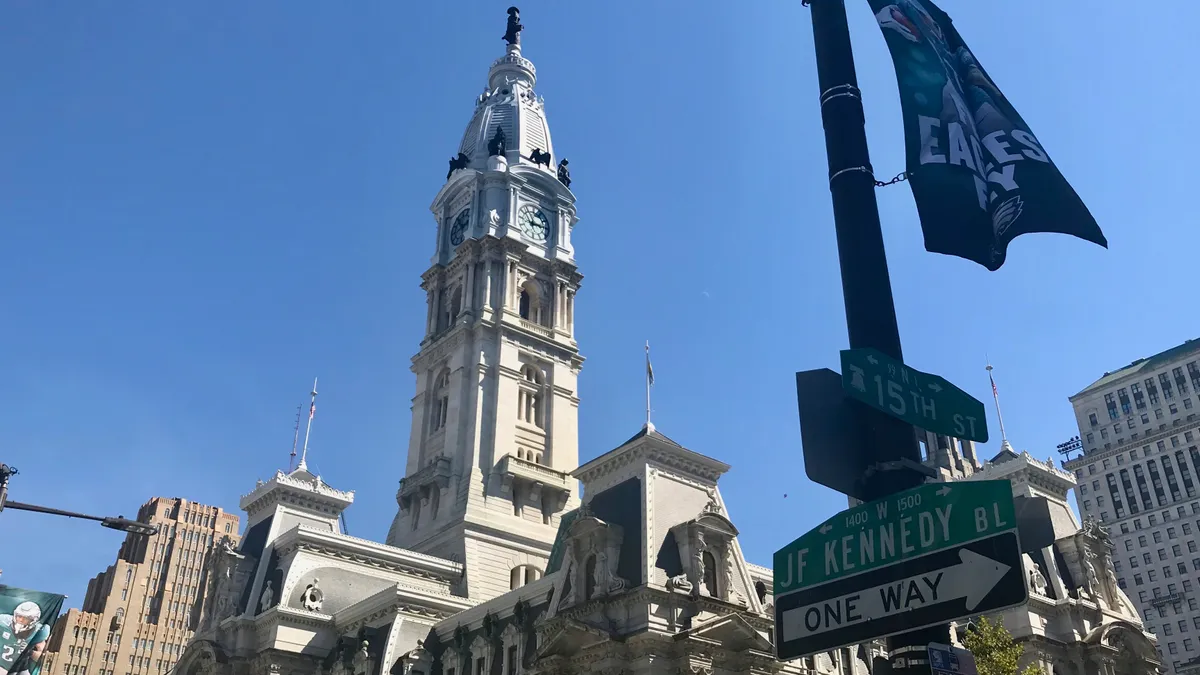Dive Brief:
- The Mayor's Office of Labor for the City of Philadelphia issued a 2019 compliance report on Jan. 8 publicly naming three employers as "bad actors" for being either unresponsive with the office or delinquent on resolving wage and benefits compliance violations.
- The intent of the "bad actor" tag is to send a message to employers that don't cooperate with city investigations or refuse to remedy violations, The Philadelphia Inquirer reported, and an employer will be removed from the list once it remedies the situation.
- The city's Office of Labor issued a total of 129 violations last year and collected more than $102,000 in wages.
Dive Insight:
Philadelphia's approach may be a unique way to shame employers that haven't complied with investigations. Alexander Passantino, former acting administrator of the U.S. Department of Labor's (DOL) Wage and Hour Division and current partner at Seyfarth Shaw, told HR Dive he hadn't seen anything resembling a "bad actors" list from other regulatory entities, outside of the list of companies barred from obtaining federal contracts maintained by DOL's Office of Federal Contract Compliance Programs.
"This is a way to ensure employers are going to come into compliance. That's the whole point," Passantino said. "It's another piece of the enforcement puzzle."
The measure is part of a push among governments to increase enforcement of wage laws, Maxine Neuhauser, member of the firm at Epstein Becker Green, told HR Dive. The term "wage theft" is increasingly being used to describe such violations, she said, but a "bad actors" list may not have as big of a financial impact as other actions. "It appears to me, at least, to be a relatively low-cost way for the city to try and get people to pay up or cooperate," Neuhauser said. "It has this shaming element to it."
Other regulatory bodies have named alleged violators in press releases. Similarly, the Occupational Safety and Health Administration maintains a list of companies in its Severe Violator Enforcement Program, which focuses on "employers who demonstrate indifference to the health and safety of their employees through willful, repeated, or failure-to-abate violations" of the Occupational Safety and Health Act, according to an executive summary of the program.
Philadelphia's actions occur against another backdrop: federal agencies in charge of enforcing labor laws have increased their "compliance assistance," a shift observed by management-side counsel in 2017. Under the Trump administration, DOL has pursued this goal through opinion letters and its Payroll Audit Independent Determination program, through which employers self report violations of the Fair Labor Standards Act.
Passantino expects that there will be "copycats" of Philadelphia's bad actors list, although he noted that the definition "seems relatively limited," as the list is reserved for employers who refuse to cooperate with the city. And while employers have had some success pushing back against enforcement efforts, attorneys generally recommend some level of cooperation. "It's always important to be responsive to the investigator when they come knocking," Neuhauser said. "When you get a call, call them back."













